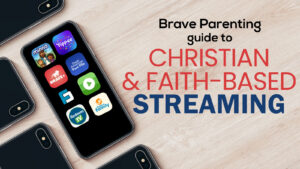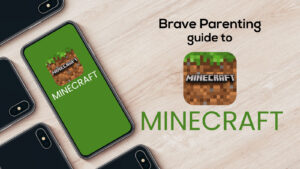I was nineteen years old when I received my first (and only) debt collection call. The man calling knew everything about me, and with authority, was set to collect on my unpaid debt.
Except, the debt was from seven years earlier – when I was twelve. And the line of credit was opened with a large catalog company – of which I knew nothing of.
Confused and slightly panicked, I tried to make sense of what was happening. Then it clicked – my mother!
SHARENTING
My mom was guilty of something we now refer to as Sharenting. Using my information, my mom opened a line of credit to indulge in retail therapy.
Today, sharenting describes when a parent shares (or overshares) information or content about their child on their social media or the internet. It can be something as harmless as a picture from a birthday, a story about the child, or a gripe about parenting. The crux of sharenting, however, is how it makes the child feel – now or later on.
Is it embarrassing? Hurtful? Detrimental to future success?
When they become an adult, will they look back at their intimate details from childhood shared over the internet and be okay with every picture and hashtag? Or will they feel, like I did, violated and exposed by the person they trust most in the world?
Parents may think, “It’s just a picture” or “I’m only joking when I post #childforsale”. These are dangerous misconceptions, however, since the content is posted on the global internet over social networking sites who exist to “connect people” whether good or bad.
PRIVACY
One reason parents don’t think twice about sharenting is their belief in a “private” social media account. While it’s true, shared content on a private account will only be seen by ‘friends’, the internet as a whole is keeping records.
Have you read the terms of service for your social media platform? Even with new updates made after Facebook’s 2018 data-sharing scandal, these companies are still collecting and analyzing content in order to know you better, connect you to others, and improve their services. Furthermore, when you agree to their terms of service you grant a
“worldwide, royalty-free, sublicensable, and transferable license to host, store, use, display, reproduce, modify, adapt, edit, publish, and distribute the content….and a perpetual license to create derivative works from, promote, exhibit, broadcast, syndicate, sublicense, publicly perform, and publicly display content.”
Even if you don’t speak in legal jargon, it’s easy to see how broad they cast their nets of permissions.
If technology experts are correct, the next decade’s technological advancements will reveal everything ever posted online about someone. And since Google and Facebook can already recognize your child’s face, there will be no problem aggregating their data into one digital bucket or resume, as they say.
PREDATORS
Social Networking Sites may not be the predators themselves but real predators use these sites in order to steal, kill, and destroy. Steal you identity and pictures, kill your sense of privacy and safety, and destroy your future.
Parents are not predators. Therefore, parents must act in a way that protects a child’s identity, pictures, privacy, security, and future.
Cybercrimes such as “Digital Kidnapping” are becoming more and more common. Digital Kidnapping is when photos of young children are stolen from social media profiles and reposted by others as if they were their own. Cybercriminals search popular parenting hashtags to find and take photos. Disgusting enough as that is, there are also “Digital Adoption Agencies” where “moms” can bid on photos of different children that they can pay to claim are their own.
There are also the social media sexual predators who scour feeds and hashtags looking for vulnerable young girls (and boys). Perhaps your child’s social media account is private but if yours is public and you are posting pictures of your children, predators can find a way to your child.
Too often parents believe this would never happen to their child. It must be considered that 82% of sex offenders use social media to find their victims (and committed sex offenders cannot be banned from social media). This isn’t about how wise your child is but the visibility and accessibility you may be granting others to your child.
PERMISSION
Without my consent or knowledge, my mother created a history about me. I didn’t go on a reckless shopping spree and not pay the bill, yet I was left with the consequences.
Even more, my debt collector had every bit of personal information about me. He didn’t need my permission to possess it because my mom already consented years earlier. And looking only at the shared data and its consequences, I now appeared to be an irresponsible, immature, unreliable, fiscal failure.
Similarly, schools, organizations, institutions, etc. do not need a child’s permission to possess information on them because parents are granting consent by publicly posting.
All of the sharented data on the internet has the potential to compromise how others view your child’s character.
Employers search social media content to determine whether an applicant will be reliable, hard-working, and responsible. Colleges seek out character-revealing content on social media accounts to determine if a potential student could responsibly represent their institution. Housing lenders, juror selection committees, and future in-laws all have similar access to judge character.
Parents on social media are often establishing a digital character profile of their child before they can speak in full sentences. In fact, ninety percent of children have a social media presence before age two. This equates to overflowing digital buckets of information before a child can understand what the internet and social media is.
Even when a child can comprehend the internet, are parents asking for permission before sharing?
PRESS PAUSE
As difficult as this is to recognize (because social media sharing has become a social norm), parents must humbly press pause and evaluate their posting. Ask yourself these questions:
1. Why am I publicly posting my child’s life through words and pictures? Are there any selfish desires or motivations to gain personal attention through these posts?
2. Will my child approve and appreciate every picture shared, word written, and hashtag used when they are adults?
3. Have I considered my child’s privacy and the future implications of having established their digital character profile for them?
4. If my account is public, anyone can find and steal pictures of my children for corrupt and divisive use – is this a risk I am willing to take?
5. Am I setting a bad example for my children by constantly taking pictures and videos and posting them online?
6. Am I willing to ask for my children’s permission before I post or write about them online?
PROTECT
If my mom had asked for my permission before using my social security number, I believe I would have given an emphatic “No”. Neither of us could foresee her death a year later or my debt collection call seven years past that.
Today, we cannot foresee what lies beyond the digital horizon. Therefore, we must deeply consider what future consequences we can protect them from now by altering our sharenting habits.














